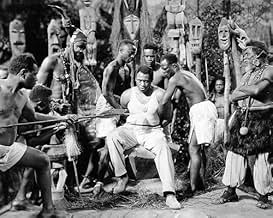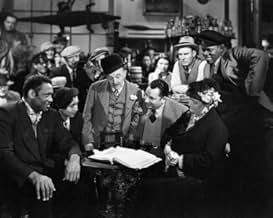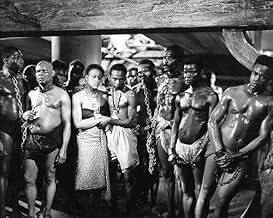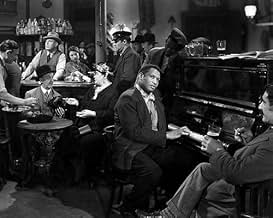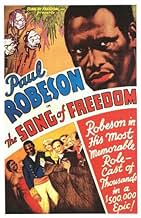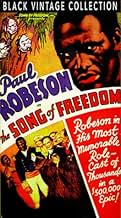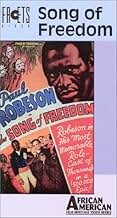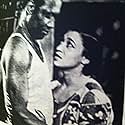A black British dockworker named Johnny Zinga becomes a famous singer and learns that he is the rightful king of the African island of Casanga.A black British dockworker named Johnny Zinga becomes a famous singer and learns that he is the rightful king of the African island of Casanga.A black British dockworker named Johnny Zinga becomes a famous singer and learns that he is the rightful king of the African island of Casanga.
Elisabeth Welch
- Ruth Zinga
- (as Elizabeth Welch)
Bernard Ansell
- Sir James Pyrie
- (as Bernerd Ansell)
Cornelia Smith
- Queen Zinga
- (as Miss C. Smith)
Sydney Benson
- Gate-Keeper
- (uncredited)
Cathleen Cavanagh
- Woman
- (uncredited)
Alf Goddard
- Alf, the Bartender
- (uncredited)
Storyline
Did you know
- TriviaPaul Robeson performs a scene from Louis Gruenberg's operatic version of "The Emperor Jones". He earlier had starred in Eugene O'Neill's original play on Broadway (1923) and in the film version The Emperor Jones (1933).
- Quotes
Gabriel Donozetti: What's the matter the color of his skin, when he has color in his voice! Power! Beauty! I go fighting!
- ConnectionsFeatured in That's Black Entertainment (1990)
Featured review
Although no-one could call this a great movie, it is of compelling historical interest. At a time when Black people in the movies were servants or scoundrels, Paul Robeson portrayed a London dock-worker who is discovered by an impresario and launches a great singing career; after that, he goes to Africa to bring education and enlightenment to the tribespeople.
It's easy to be harsh on this movie; it shows the people of Africa as benighted savages in need of guidance (only this time they get it from Robeson, playing an Afro-cockney). The whole second half plays in tropical-adventure mode, with all the clichés of the 1930s.
But you have to realize that the film's sympathies are with the London dock-workers, black and white; it goes to great lengths to show them treating each other with friendship and respect, and this is the most notable part of the story. Everyone else is a caricature - the impresario, the aristocratic explorer, the witch-doctor, and so on.
Anyone who has a tolerance for 1930s films will quickly realize that this is much better than most of them, and is worth a look for many reasons, not the least is the opportunity to hear Robeson's great singing voice. One curious fact is that this is from Hammer Studios, which later became identified with horror films.
A must see for anyone interested in cinema.
It's easy to be harsh on this movie; it shows the people of Africa as benighted savages in need of guidance (only this time they get it from Robeson, playing an Afro-cockney). The whole second half plays in tropical-adventure mode, with all the clichés of the 1930s.
But you have to realize that the film's sympathies are with the London dock-workers, black and white; it goes to great lengths to show them treating each other with friendship and respect, and this is the most notable part of the story. Everyone else is a caricature - the impresario, the aristocratic explorer, the witch-doctor, and so on.
Anyone who has a tolerance for 1930s films will quickly realize that this is much better than most of them, and is worth a look for many reasons, not the least is the opportunity to hear Robeson's great singing voice. One curious fact is that this is from Hammer Studios, which later became identified with horror films.
A must see for anyone interested in cinema.
- Prof_Lostiswitz
- Jun 4, 2004
- Permalink
Details
- Release date
- Country of origin
- Languages
- Also known as
- Un trono por una canción
- Filming locations
- Production company
- See more company credits at IMDbPro
- Runtime1 hour 6 minutes
- Color
- Aspect ratio
- 1.37 : 1
Contribute to this page
Suggest an edit or add missing content


